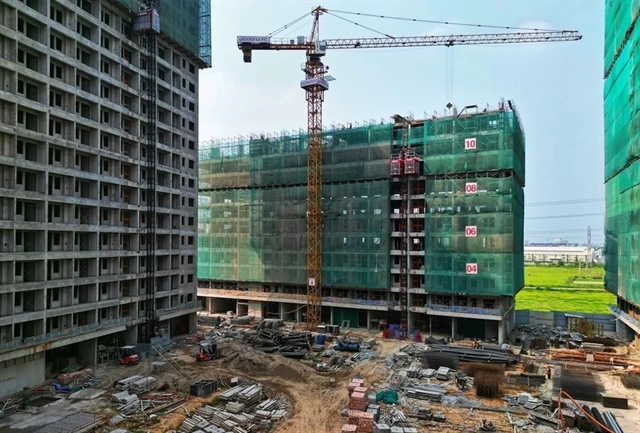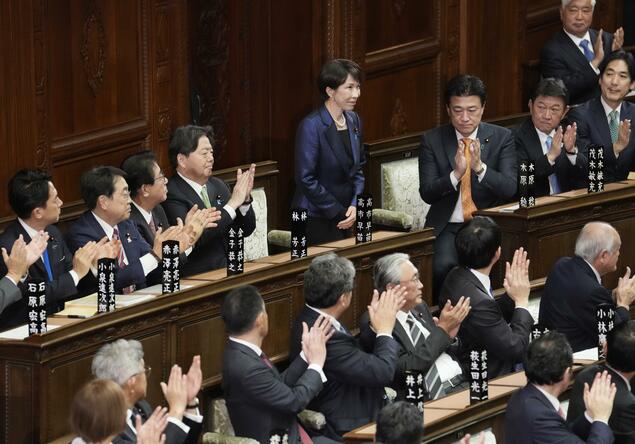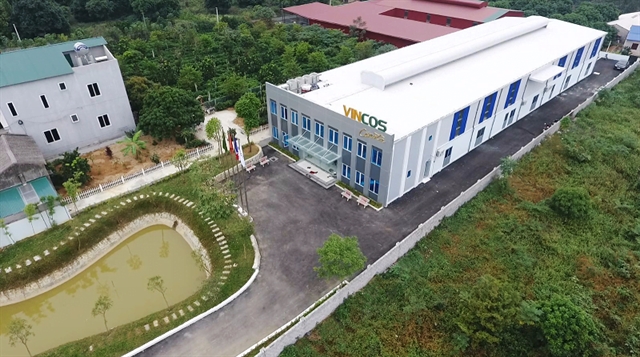 Economy
Economy


|
| An apartment complex under construction in HCM City. VNA/VNS Photo |
HÀ NỘI — The government is tightening the screws on real estate lending as banks with high property exposure face closer scrutiny, signalling a shift in capital flows to healthier sectors.
The State Bank of Vietnam (SBV) has been directed to tighten control over commercial bank capital, particularly targeting institutions heavily involved in real estate.
SBV data shows that by the end of August 2025, overall system credit had grown by over 11 per cent. However, according to Đầu tư (Investment) newspaper, credit for individual home purchases and repairs grew slowly, while real estate business loans surged by nearly 30 per cent – around three times the system-wide credit growth rate.
During a meeting with the SBV last week, Deputy Prime Minister Hồ Đức Phớc instructed that credit be channelled into priority sectors while imposing tighter oversight on commercial bank lending, especially loans with a high proportion of real estate exposure.
Analysis of capital structure reveals that most real estate enterprises remain heavily dependent on bank credit. Rising property prices, early signs of market recovery and the SBV’s credit expansion have encouraged banks to lend aggressively to developers.
Meanwhile, other medium- and long-term capital channels have not recovered significantly. From early 2025 to the end of August, real estate firms issued around 61 trillion VNĐ in bonds, accounting for 17 per cent of total bond issuance. However, this falls short of covering bonds maturing since the start of the year.
"Corporate bonds were expected to be the most important capital-raising channel for real estate, but recovery remains slow amid record maturing pressure," said Dr Cấn Văn Lực, a member of the Prime Minister’s Policy Advisory Council. "The brightest spot is that the most difficult period has passed (the peak maturity fell in August 2025).
"If the market continues recovering, enterprises can avoid mass bankruptcy. Moving forward, firms must diversify funding sources, avoid overexpansion and control bad debts. Banks should steer capital toward healthier, more sustainable segments."
Experts observe that although the real estate market has shown recovery signs over the past year, with sharp price increases in many segments, liquidity remains weak. Misallocated capital on the supply side, concentrated in high-end projects, has slowed genuine housing loan demand. High prices exceeding affordability—despite reasonable mortgage rates – have deterred actual buyers.
"Real estate prices remain high, but agents complain about stagnant sales. Except for mid-priced units costing a few billion đồng, most products struggle to sell, reflecting extremely weak market liquidity," said Investment Advisory Director at Maybank Investment Bank Phan Dũng Khánh.
Khánh believes the government’s recent measures signal tighter control over speculative real estate and flipping activities. Multiple laws are also being revised to curb speculation and promote sustainable, economy-oriented market development.
Regarding concerns about a real estate bubble, CEO of the Finance-Banking Department (Nguyễn Trãi University) Nguyễn Quang Huy argued that price surges stem mainly from supply-demand structural imbalances rather than pure speculation.
"Slow project approvals constrain supply, while demand for housing, industrial zones and logistics infrastructure remains strong. High prices result from supply bottlenecks, not necessarily speculative bubbles," Huy added.
Dr Lực calculated that a Vietnamese apartment now costs nearly 26 years of an average household’s income, compared to the global average of 15 years. The income-price gap poses a persistent challenge, and reducing housing prices remains daunting.
Experts warn that although low mortgage rates currently sustain market demand, rising interest rates could impair borrowers’ financial stability, triggering market instability. While primary market properties still sell, secondary market properties (resales) suffer poor liquidity, posing risks to holders of overpriced assets.
Deputy Director of the Housing and Real Estate Market Management Department (Ministry of Construction) Vương Duy Dũng acknowledged that real estate supply remains limited, far below demand. The Government is accelerating reforms in investment procedures, construction and planning. Reducing compliance costs is expected to boost supply.
"Although market structure has adjusted, the affordable housing segment for low-income groups remains severely undersupplied. The government will introduce additional incentives to develop this segment and policies to lower input costs for enterprises, especially land use fees," Dũng added. — VNS




